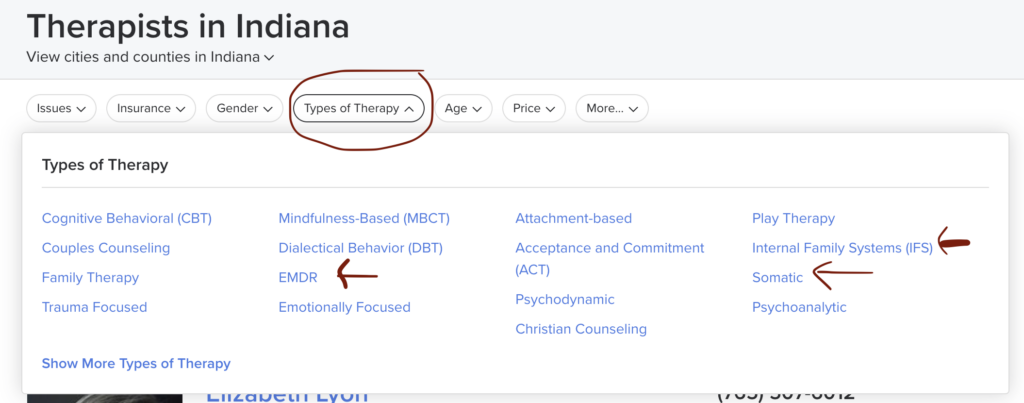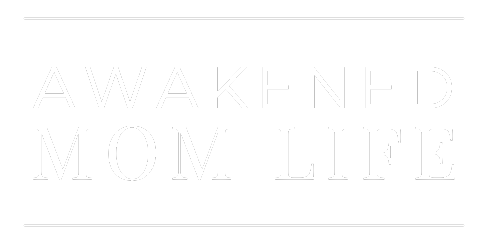I never thought I had childhood trauma. It wasn’t even something that had ever crossed my mind. Yes, I had severe depression, anxiety, difficulty in (all) relationships. etc. etc. Yes, I was miserable, suffering, and felt lost, but I still didn’t consider I had trauma.
Even after years of therapy… and after surviving a suicide attempt and being hospitalized… I didn’t consider trauma. Even as my life kept spiraling—I didn’t even consider that I could have trauma.
Doctors never mentioned it. They knew best…. right?
When I began learning about childhood trauma, I couldn’t bring myself to accept that I had gone through it. Little did I know that my denial was a massive part of my trauma. I had been essentially brainwashed into believing that my childhood was typical. I believed that everyone felt controlled, manipulated, and severely stressed. That’s because I didn’t know any difference could exist at the time.
Everything changed forever when my health finally took a massive nosedive in 2021.
For years, my health had been declining. It started at 16 when I was first diagnosed with severe anxiety and depression at 16. Then, it just continued downhill from there. My list of diagnoses grew year after year—endometriosis, IBS, Hashimotos Thyroiditis, GERD, Sleep Apnea, Dermatitis, Ehlers-Danlos Syndrome (EDS), food sensitivities, and more. Then, I hit the jackpot (in the worst way possible) and was diagnosed with Functional Neurological Disorder (FND) in 2021.
It wasn’t until my FND diagnosis that I understood how trauma affects the body. This revelation made me realize I wasn’t overreacting; I finally had concrete evidence that my childhood had indeed left its mark.
What is trauma?
Trauma is not an event.
Yes, you read that right. Trauma is not an event.
Trauma might occur around an event (or events), but it is not the event.
Trauma is like a fingerprint on your body, the mark left by the events or prolonged experiences you’ve been through. For one person, it might be the sorrow of a miscarriage; for another, the ache of a broken marriage or the toll on their health. Someone else’s trauma could stem from a natural disaster, a car crash, or a different source.
Then there are those whose trauma spans their entire childhood or accumulates from a lifetime of experiences, perhaps without a specific cause. But in the end, regardless of the source, the impact on our nervous system and how our bodies bear the weight of these experiences is remarkably similar.
I know this can be surprising, but it’s how our bodies experience life and how trauma unfolds. You can have multiple people go through the exact same event, and their reactions can be vastly different.
One person may emerge traumatized, while another may come out of it relatively unscathed, saying, “That was tough, but I’m alright.”

Think about people who face a car accident. Some may come out of it with severe anxiety or even post-traumatic stress disorder (PTSD), while others seem to recover more easily, even if the accidents were similar. It’s not just about the accident itself; it’s more about the condition of your nervous system before encountering the traumatic event. Those who develop PTSD often have existing trauma patterns within their nervous system and body, making them more vulnerable to the impact of an accident or other traumatic experience.
What’s the difference between acute trauma and complex trauma?
Acute trauma is a single, intense event that is like a car accident, a natural disaster, or a single incident of physical violence. It leaves a significant impact on you.
Complex trauma, on the other hand, is repeated exposure to traumatic events and circumstances. This could result from repeated stress or painful experiences, such as an abusive relationship, childhood neglect, or growing up in a chaotic or unstable environment.
Ultimately, acute trauma is a big, sudden event, while complex trauma is like a continuous, steady downpour of hard times that stretches over a longer period.
What is Childhood Trauma? Is it the same as Complex Trauma?
Childhood trauma is a type of complex trauma. Complex trauma is not always the result of childhood trauma. Complex trauma is most often rooted in childhood experiences. When children endure ongoing adversity, such as abuse, neglect, or living in unstable environments, it can lead to complex trauma.
These early experiences shape your emotional development, often resulting in long-lasting consequences that persist into adulthood. Understanding the connection between childhood trauma and complex trauma is crucial, as it helps shed light on the profound impact that early life experiences can have on your overall well-being and mental health.
Signs of Complex post-traumatic stress disorder (CPTSD)
- Anxiety
- Having flashbacks or nightmares.
- Avoiding situations, places, and other things related to the traumatic event.
- Heightened emotional responses, such as impulsivity or aggressiveness.
- Persistent difficulties in sustaining relationships.
Coping Mechanisms of Complex post-traumatic stress disorder (CPTSD)
- Emotional eating
- Substance use to numb
- Binge-watching TV
- Mentally checking out
- Emotionally distancing from others
Health conditions related to complex post-traumatic stress disorder (CPTSD)
- Chronic pain
- Autoimmune disorders
- Fibromyalgia
- Fatigue
- Digestive issues
- Chronic fatigue
When I first learned about the signs of CPTSD, I was once again in complete denial. It was as if I had been wearing blinders, unable to see the reality of my own struggles. Sure, I knew I had severe anxiety and mental health issues, but I assumed it was a normal part of life. I genuinely believed that everyone felt this level of pain and difficulty in life.
Admitting to myself that I might be experiencing complex trauma took years.
Am I being dramatic, or is this trauma?
First and foremost, you do not need a label or official diagnosis to know how you feel about your childhood. You don’t need a label or diagnosis to begin healing from the pain you feel. While getting a diagnosis can help validate your experience, don’t let it hinder you from taking the important steps toward healing.

You’re not being dramatic; it could be trauma.
Trauma isn’t always obvious and can manifest in various ways. Your feelings and experiences are valid, and exploring them further is essential to understand if they stem from past trauma or other sources.
Often, childhood trauma survivors are gaslit by abusers and told they are being dramatic and overly sensitive. The fact you are asking yourself this question indicates that someone has tried to manipulate you to deny your feelings. A healthy response to emotions is to honor them and explore their origins, whether it’s trauma-related or not. Your feelings are a vital part of your inner compass, guiding you towards understanding, healing, and, ultimately, reclaiming your emotional well-being.
Could I have borderline personality disorder (BPD)?
Borderline Personality Disorder (BPD) and Complex Post-Traumatic Stress Disorder (CPTSD) have some overlapping symptoms, but they are distinct conditions.
BPD is a personality disorder characterized by unstable relationships, self-image, and emotions. People with BPD often struggle with intense mood swings, impulsive behavior, fear of abandonment, and unstable self-identity. BPD typically develops in early adulthood and is considered a personality disorder, which means it’s a long-term pattern of behavior.
CPTSD, on the other hand, is not a personality disorder but a specific form of post-traumatic stress disorder. It arises from exposure to repeated or prolonged traumatic events, especially during childhood. CPTSD symptoms include emotional dysregulation, self-esteem problems, difficulties forming healthy relationships, and a heightened startle response. It’s a reaction to chronic trauma and can develop at any age.
In summary, while BPD and CPTSD may share symptoms like emotional instability and relationship difficulties, they have different underlying causes and diagnostic criteria. BPD is a personality disorder, while CPTSD is a type of post-traumatic stress disorder resulting from chronic trauma exposure.
What should I do if I believe I have childhood trauma?
If you are ready to begin healing from your past, it’s important to take action. I wish I could say that finding the right help is easy, but it’s not. I know from experience, and it’s exactly why I started to share my story to help others.
Childhood trauma changes your brain and body, and that’s precisely why conventional medicine doesn’t always have all the answers. Trauma’s impact can profoundly alter how our brains and bodies function. While medical professionals play a crucial role in healthcare, understanding and addressing the effects of trauma may require a more comprehensive and holistic approach. This involves recognizing the mind-body connection and seeking out trauma-informed care that can provide a more complete understanding of your healing journey.
When looking for professional trauma-informed mental health support, it’s important to find trauma-formed care. Here are a few types of trauma-informed therapy to explore:
- EMDR (Eye Movement Desensitization and Reprocessing)
- Internal Family Systems (IFS)
- Somatic

How do I heal from Childhood Trauma?
Healing from childhood trauma and developmental trauma doesn’t have to be a long, drawn-out process. But you do have to listen to your body; it won’t let you go any faster than it’s able. Healing has to happen on three levels: physiological, biological, and cognitive.
- Re-connect to your body
- Release the biological imprint of trauma
- Challenge your thought patterns
Each component impacts the others in a tightly woven web of influence. You can’t skip one because they all work together. Your body and brain function as a complex and interdependent system, where changes in one aspect ripple through the others, making it essential to address each component for comprehensive healing.
Learn more about the biological impact of trauma.














